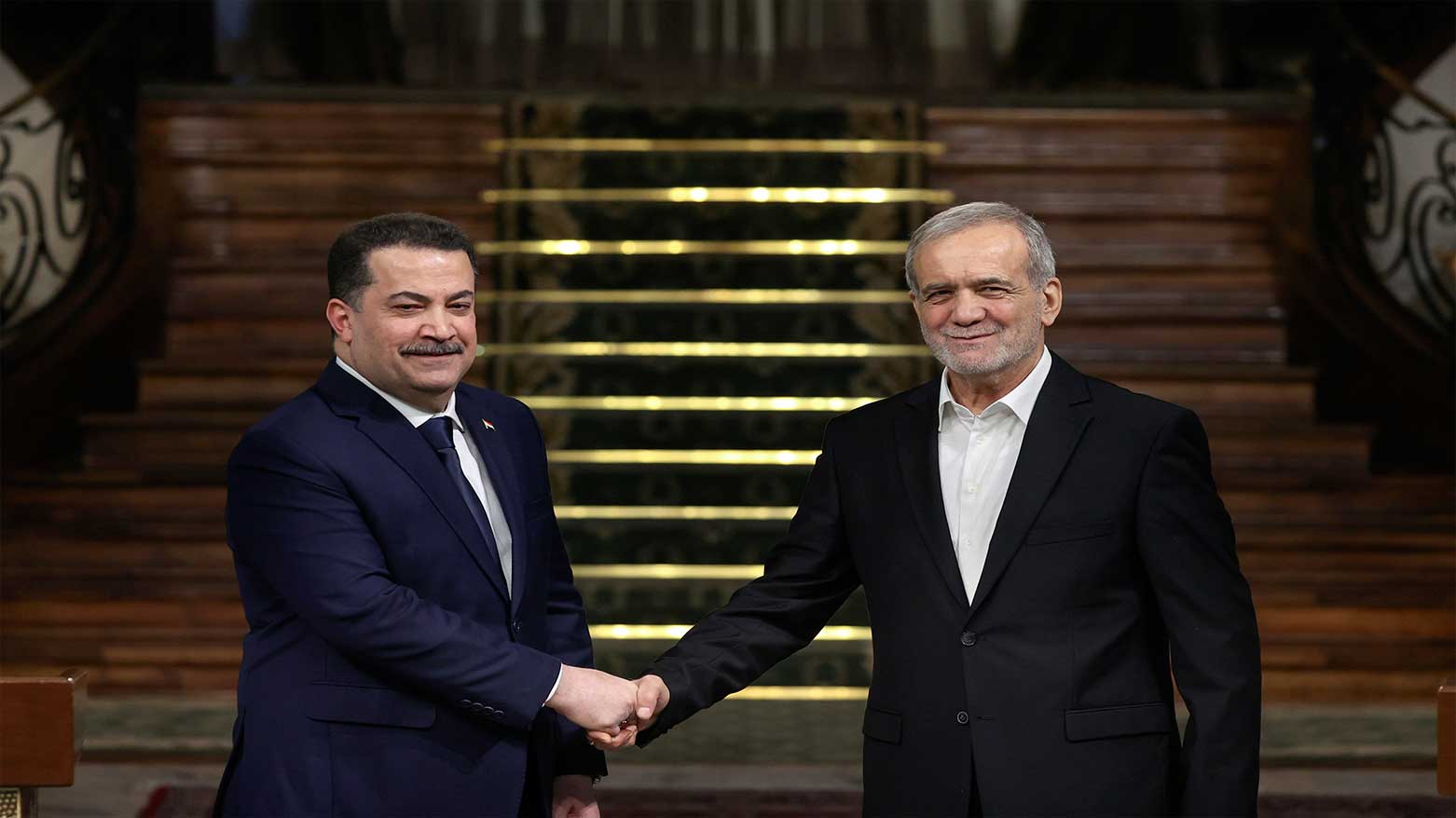Iraq: Iran’s Last Stronghold Amid U.S. Sanctions, Tehran Times Commentary Warns
The report suggests that Iraqi Prime Minister Mohammed Shia al-Sudani is fully aware that Iraq serves as Iran’s last significant base of influence in the region.

ERBIL (Kurdistan24) – In a recent commentary, the Tehran Times, citing Sharq, one of Iran’s most prominent Reformist daily newspapers, underscored Iraq’s pivotal role in Tehran’s ongoing confrontation with the United States. The report suggests that Iraqi Prime Minister Mohammed Shia al-Sudani is fully aware that Iraq serves as Iran’s last significant base of influence in the region—an essential conduit through which Tehran can maneuver around Western sanctions.
According to the analysis, Iraq hosts an array of armed groups capable of acting as Iran’s “front defense” in the event of a full-scale military escalation against the Islamic Republic. Simultaneously, Iran has a vested interest in ensuring stability in Iraq, making PM Sudani an instrumental figure in maintaining the fragile balance between Tehran and Washington.
The commentary also warns that the Trump administration could impose tighter sanctions on Iraq, potentially targeting Iraqi financial officials suspected of aiding Iran in circumventing U.S. restrictions. Such measures would disrupt the delicate geopolitical equilibrium and could critically weaken the Sudani government.
The Iraqi prime minister’s position has become increasingly precarious as he struggles to maintain control over various factions, particularly groups aligned with the so-called Iraqi Islamic Resistance. The Tehran Times commentary suggests that Sudani’s ability to navigate these complex pressures is being tested like never before, with heightened U.S. scrutiny and Tehran’s strategic interests hanging in the balance.
As tensions escalate, Iraq finds itself at the heart of a high-stakes geopolitical struggle, balancing between Iranian influence and U.S. pressure—an equilibrium that may not hold for long.
Iraq’s failure to curb Iranian influence and rein in armed militias has long been a source of frustration for Washington. Despite repeated warnings and diplomatic efforts, successive Iraqi governments have struggled—or in some cases, refused—to take decisive action against Iran-backed factions that operate with near impunity. The presence of these groups not only undermines Iraq’s sovereignty but also emboldens Tehran, allowing it to project power beyond its borders and threaten U.S. interests in the region.
The Trump administration took a firm stance against Iranian expansionism, implementing a maximum-pressure campaign that sought to cripple Tehran’s economy and restrict its ability to fund proxy militias. Sanctions targeted key figures within Iran’s government, as well as Iraqi officials and financial institutions suspected of facilitating illicit transactions for Tehran. Under Trump, Washington made it clear that Iraq would face severe consequences if it continued to serve as a financial lifeline for the Iranian regime.
However, Iraq’s leadership has largely failed to distance itself from Tehran, with PM Sudani walking a tightrope between appeasing Washington and maintaining ties with Iran. His inability—or unwillingness—to crack down on pro-Iran militias signals a broader issue: Iraq’s compromised sovereignty and growing dependence on Tehran’s political and economic networks.
While Iran leverages its ties with Iraq to maintain regional influence and navigate Western sanctions, the Iraqi government faces ongoing challenges in asserting control, struggling to balance its domestic priorities with external pressures.